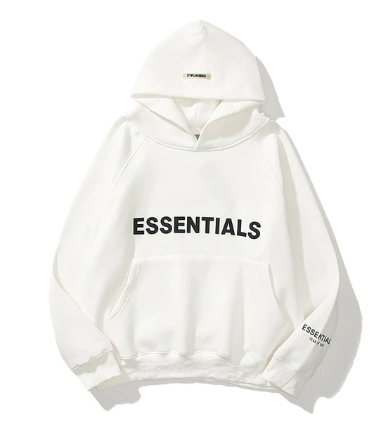Essentials Hoodie sustainable fabric choices
As the fashion industry evolves, sustainability has become a critical focus. The Essentials Hoodie is at the forefront of this movement, embodying both style and eco-consciousness. In this article, we explore the sustainable fabric choices that make the Essentials Hoodie a leader in ethical fashion.
Organic Cotton: A Natural Choice
Organic cotton is a cornerstone of the Essentials Hoodie’s sustainable fabric lineup. Grown without synthetic pesticides and fertilizers, organic cotton farming practices promote healthier ecosystems and reduce harmful chemical runoff. https://theessentialhoods.com/ This not only benefits the environment but also supports the well-being of agricultural communities.
Organic cotton is known for its softness and breathability, making it a comfortable choice for everyday wear. The absence of harsh chemicals in its production means that organic cotton is gentle on the skin, reducing the risk of allergies and skin irritations. By choosing organic cotton, the Essentials Hoodie aligns with a growing consumer demand for transparency and sustainability in fashion.
Recycled Polyester: Turning Waste into Wearable Art
Recycled polyester is another innovative fabric used in the Essentials Hoodie. This material is derived from post-consumer plastic bottles, diverting waste from landfills and reducing the need for virgin polyester production. The process of creating recycled polyester involves melting down the plastic bottles and spinning them into new fibers, which are then woven into durable and high-performance fabrics.
Recycled polyester retains the beneficial properties of traditional polyester, such as moisture-wicking and durability, while significantly lowering the environmental impact. The Essentials Hoodie’s use of recycled polyester demonstrates a commitment to circular fashion and resource conservation, setting a new standard for sustainable clothing.
Hemp: The Eco-Friendly Powerhouse
Hemp is one of the most environmentally friendly fabrics available, and it is increasingly being incorporated into the Essentials Hoodie line. Hemp cultivation requires minimal water and pesticides, and the plant itself is highly resilient, able to grow in diverse climates and soil types. Additionally, hemp absorbs large amounts of carbon dioxide during its growth cycle, making it a carbon-negative crop.
The fibers produced from hemp are exceptionally strong and durable, ensuring that garments made from hemp fabric are long-lasting. Hemp’s natural resistance to mold and UV light further enhances its suitability for outdoor wear. By incorporating hemp, the Essentials Hoodie not only provides a robust and sustainable option but also supports the shift towards low-impact agriculture.
Tencel: The Closed-Loop Fabric
Tencel, also known as lyocell, is a fabric made from sustainably sourced wood pulp, typically from eucalyptus, beech, and spruce trees. The production process of Tencel is notable for its closed-loop system, which means that nearly all solvents and water used in the process are recycled and reused. This significantly reduces the environmental footprint of fabric production.
Tencel is prized for its softness, breathability, and moisture-wicking properties, making it an excellent choice for comfortable, high-performance clothing. The Essentials Hoodie’s use of Tencel underscores a commitment to innovative and sustainable textile solutions that prioritize both the environment and the wearer’s comfort.
The Impact of Sustainable Fabric Choices
The incorporation of these sustainable fabrics into the Essentials Hoodie reflects a broader shift in the fashion industry towards eco-consciousness. Each fabric choice not only minimizes environmental impact but also offers unique benefits in terms of comfort, durability, and performance. By prioritizing sustainable materials, the Essentials Hoodie brand is helping to drive the industry forward, encouraging other brands to adopt similar practices.
Conclusion
The Essentials Hoodie’s commitment to sustainable fabric choices positions it as a leader in ethical fashion. By utilizing organic cotton, recycled polyester, hemp, and Tencel, the brand showcases how style and sustainability can go hand in hand. These fabrics not only reduce environmental impact but also enhance the quality and performance of the garments. As consumers increasingly seek out eco-friendly options, the Essentials Hoodie stands out as a prime example of how fashion can be both stylish and responsible.



